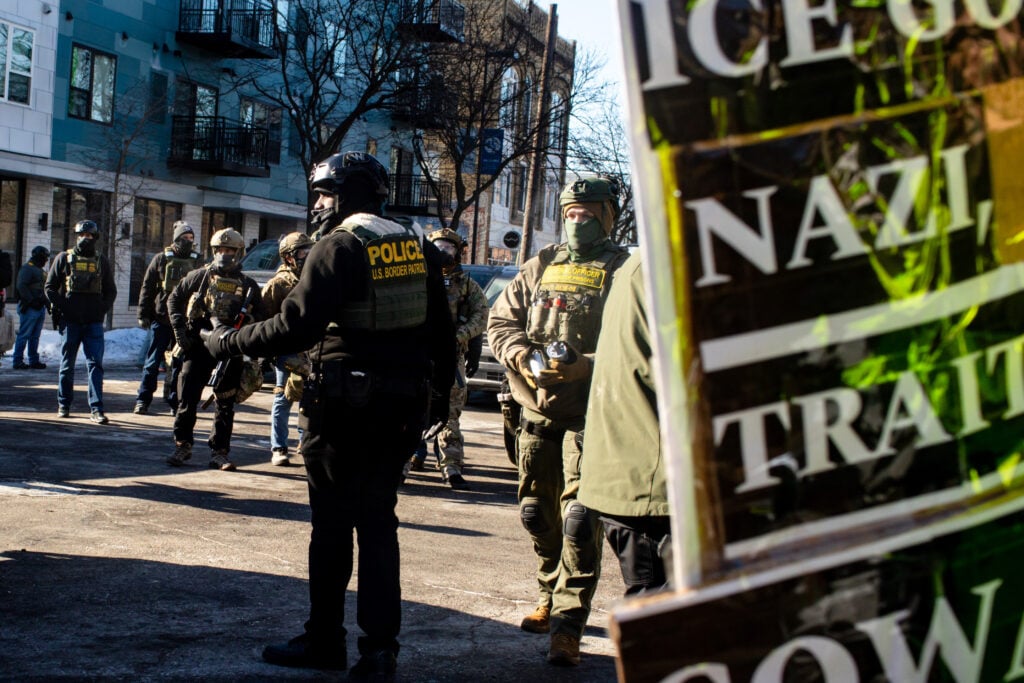Dial M for the Mob

Kenneth Matzdorff, the president of Cass County Telephone, mingles easily among the locals at Pat’s Family Restaurant in Peculiar, where CassTel is based. “He comes down and eats breakfast with us and is just as common as an old shoe,” says George Lewis, the mayor of Peculiar.
Despite ordinary appearances, Matzdorff lives in a gated community outside Belton. County appraisers say his house is worth $467,000.
And federal authorities believe that he was a “high-ranking officer” in a company controlled in secret by gangsters.
A twenty-count indictment unsealed in federal court in New York in February said that members and associates of the Gambino crime family — a gang made famous by its murderous former boss, John Gotti — stole $200 million by falsifying telephone charges, a practice known as “cramming.” The indictment named ten people and a billing company based in Overland Park that provided the cover of Midwestern propriety.
Matzdorff helped organize the billing company, USP&C. He has not been charged, though he was mentioned as a company officer in an affidavit used to obtain a search warrant. He denies playing a part in a fraud or being aware of anyone’s ties to organized crime. In April, he told the Missouri Public Service Commission, which regulates local phone service, that he merely “put together the paperwork” when USP&C was formed in 1996. “We had no employees at the time, so I placed myself as the president, but I’ve never held an active function with that company nor as an officer of that company,” he said.
CassTel was not directly involved in the alleged cramming scheme. The Public Service Commission summoned Matzdorff to Jefferson City in April to discuss a matter unrelated to the federal indictment: an agreement that called for CassTel to reduce its customer billing by $320,000. But the regulators also wanted to ask Matzdorff about USP&C and the mob.
USP&C was what’s called a “billing aggregator.” Through agreements with various local phone companies, USP&C charged customers for services (such as voice mail) provided by third parties. Its name may have suggested a trusted utility, but USP&C cheated consumers, according to suits brought by regulators in other states. California’s Public Utilities Commission found that of the $51.5 million USP&C billed through Pacific Bell in 1998 and 1999, $27 million was refunded at customers’ requests.
Matzdorff told the Missouri commissioners that he sold his interest in USP&C in 1998. Yet his name is signed to a court settlement that the company and the state of Wisconsin reached in 1999, after the Wisconsin attorney general had accused USP&C of cramming. USP&C settled the claim by agreeing to pay a $50,000 fine and to stop billing customers for unauthorized services.
The document is signed in deliberate cursive by “Kenneth Matzdorff, company president.” William England III, Matzdorff’s attorney, suggests that the signature was forged. Matzdorff, England tells the Pitch, is not aware of the settlement. “He did not sign it,” England says.
It is not absurd to think that Mafia types would forge a signature. But if Matzdorff doesn’t know his name is on the paperwork, he is one oblivious phone company executive. He is also associated with two other companies — one owns CassTel — that the feds say were organized-crime properties.
Authorities say a Gambino family soldier, Richard Martino of Harrison, New York, and an associate named Norman Chanes initiated a scheme by advertising free psychic readings and sex chats in adult magazines and other media. The phone lines Martino and Chanes operated, advertised as toll-free, were a trap, authorities say. Callers who dialed the numbers were later charged for unapproved services on their regular phone bills.
[page]
USP&C allegedly served as the agent between those lines and the local phone companies that billed customers. The generic name “USP&C” shaded the charges’ true origin; vague and misleading terms (“Call Mgr Plus,” “Dial Plan”) provided an additional layer of camouflage.
The scheme generated staggering amounts of money — as much as $600,000 a day, according to the indictment. Martino, Chanes and their associates guarded the enterprise, authorities say, using a host of disposable companies to distract attention, even creating a call center to handle complaints. Only insistent customers received full refunds, according to the indictment.
Local phone companies and regulators presented a challenge for the mobsters, though. A high refund rate prompted Pacific Bell (now SBC) to stop carrying USP&C’s charges. Undaunted, USP&C started contacting customers directly, authorities allege, mailing bills made to look like SBC’s — all the way down to the blue stripes along the margin of the page. Customers were threatened with canceled service if they failed to pay the bill from “Southwest Region Bell,” a fiction controlled by Martino and Chanes, according to the indictment.
Authorities believe the scheme grossed $200 million from 1997 to 2001. Roslynn R. Mauskopf, the U.S. attorney in Brooklyn, called the enterprise one of the largest consumer frauds in American history. Last year, several of the same men were charged with running an Internet pornography scam similar in design and scale.
Brooklyn is a long way from Belton, where Kenneth Matzdorff is considered an upstanding citizen. “He’s a super guy. He’s a real asset to our community,” Mayor Lewis says. Matzdorff is a successful businessman — not one who has to cheat, Lewis says.
“As far as I’m concerned, I’d trust him with the keys to my house, my wife and my cat,” Lewis says.
The Missouri Public Service Commission heard similar statements at the April presentation. England, Matzdorff’s attorney, described a twenty-year veteran of the trade who first worked for a phone company while he was an Iowa State University student. Matzdorff serves today on the board of a Missouri telecommunications trade group. “Word gets around if you’re not a person that plays by the rules,” England tells the Pitch. “Ken wouldn’t have lasted nearly as long as he has if he wasn’t someone who did play by the rules.”
CassTel is a respected company. An auditor told the commission that CassTel had spent a great deal of money upgrading its technology. Mayor Lewis says phone service in the area used to be terrible; a call from Peculiar to Raymore once drew a long-distance charge. “I think we now have one of the finest phone systems in the state of Missouri,” Lewis tells the Pitch.
But the indictment charges that the system is owned by the mob.
CassTel is held by an entity called Local Exchange Company. Matzdorff told the Public Service Commission that he founded the holding company after a bank told him about an opportunity to buy the phone service. Matzdorff said that 46 investors joined him, some of them acquaintances, others referred by people he trusted. As for specifics, Matzdorff was not forthcoming. “I’m hesitant to name names,” he said. (Matzdorff did not return the Pitch‘s calls.)
The indictment alleges that Local Exchange Company is owned in part by five of the defendants, including Martino, Chanes and Salvatore LoCascio, who is identified as a Gambino family captain. (LoCascio’s father, Frank, was convicted on racketeering charges alongside Gotti in 1992.)
[page]
The mob’s grip on Missouri phone lines reached beyond Cass County, according to the indictment. In 2000, Local Exchange Carriers, which authorities also believe was controlled by Martino and Chanes, entered into a joint venture with CenturyTel, an S&P 500 company, to purchase 127,000 phone lines in towns across Missouri, stretching (alphabetically) from Amazonia to Winona.
Matzdorff told the Public Service Commission that he put together the deal with CenturyTel, which continues to employ him as a vice president. A CenturyTel spokeswoman tells the Pitch that Matzdorff advises the company’s regulatory team.
Under questioning, Matzdorff did his best to distance himself from any connection to alleged mobsters. The commission’s chairman, Steve Gaw, asked at one point if he had pronounced the name LoCascio correctly. “I don’t know,” Matzdorff replied.
Gaw and another commissioner were gentle in questioning Matzdorff. They did not, for instance, ask Matzdorff to name his partners in USP&C — the company that started with “no employees” — and why the company was formed. The actions taken by regulators in Wisconsin and California suggest a dishonest operation. The California Public Utilities Commission cited USP&C’s “extensive record of billing misconduct” in upholding a $1.75 million fine, which USP&C has not paid.
Gaw also didn’t force Matzdorff to fully account for a $970,000 check. The indictment says the check was paid to Local Exchange Company by an entity called Overland Data Center. Matzdorff described Overland Data Center as a vendor, in which case the money should have passed in the other direction — a notion that seemed lost on Gaw, based on a transcript of the proceeding.
The commission decided to approve the rate reduction without passing judgment on the mob allegations. Commissioners later issued a press release saying they were “still concerned” about the allegations and would consider opening a case to monitor developments.
Back in Cass County, Matzdorff is not speaking to the media, but he does move in public. Mayor Lewis says he encouraged Matzdorff, who seemed to want to keep a low profile when the mob story broke, to take his coffee at Pat’s again.
“No one bugs him about it,” Lewis says. “No one really talks about it. We just talk about the weather, the crops, the football team, whatever. In my book, he’s an OK guy. I feel there’s nothing negative about him.”




